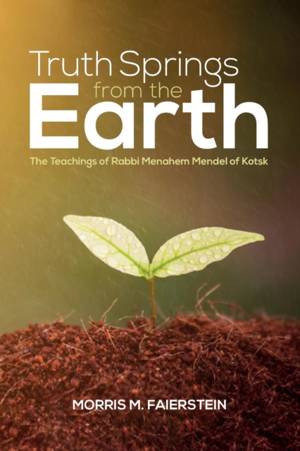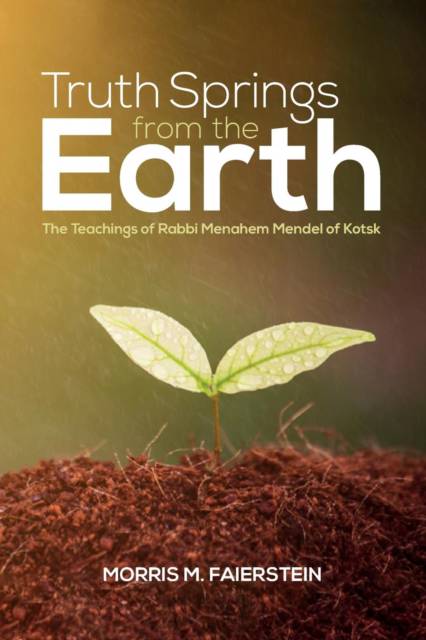
Je cadeautjes zeker op tijd in huis hebben voor de feestdagen? Kom langs in onze winkels en vind het perfecte geschenk!
- Afhalen na 1 uur in een winkel met voorraad
- Gratis thuislevering in België vanaf € 30
- Ruim aanbod met 7 miljoen producten
Je cadeautjes zeker op tijd in huis hebben voor de feestdagen? Kom langs in onze winkels en vind het perfecte geschenk!
- Afhalen na 1 uur in een winkel met voorraad
- Gratis thuislevering in België vanaf € 30
- Ruim aanbod met 7 miljoen producten
Zoeken
Truth Springs from the Earth
The Teachings of Rabbi Menahem Mendel of Kotsk
Morris M Faierstein
Paperback | Engels
€ 33,95
+ 67 punten
Uitvoering
Omschrijving
Rabbi Menahem Mendel of Kotsk (1787-1859) was one of the most interesting and challenging figures of Hasidism in the nineteenth century. His search for truth and battles against falsehood and spiritual compromise are the subject of many legends, hagiographical stories, and anecdotes. Though he was irascible and demanding, he inspired the loyalty of disciples who went on to become the dominant leaders of Hasidism in Poland from the middle of the nineteenth century to the destruction of Polish Jewry in the Holocaust. R. Menahem Mendel left no surviving writings. His descendants and disciples moved away from the radicalism of his teachings and adopted more conventional and conservative theological positions. As a result, there was little incentive to preserve and publish his teachings. The goal of this work is twofold. First, to present a biographical study of what is known about R. Menahem Mendel that is based on historical research, instead of repeating myths, legends, and stories without regard to their historical veracity. Secondly, to collect, translate, and analyze those teachings and sayings by or about R. Menahem Mendel that are consistent with what we know about his life and teachings, and are also accessible to a broader audience.
Specificaties
Betrokkenen
- Auteur(s):
- Uitgeverij:
Inhoud
- Aantal bladzijden:
- 158
- Taal:
- Engels
Eigenschappen
- Productcode (EAN):
- 9781532637254
- Verschijningsdatum:
- 2/04/2018
- Uitvoering:
- Paperback
- Formaat:
- Trade paperback (VS)
- Afmetingen:
- 152 mm x 226 mm
- Gewicht:
- 176 g

Alleen bij Standaard Boekhandel
+ 67 punten op je klantenkaart van Standaard Boekhandel
Beoordelingen
We publiceren alleen reviews die voldoen aan de voorwaarden voor reviews. Bekijk onze voorwaarden voor reviews.









